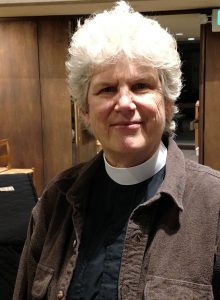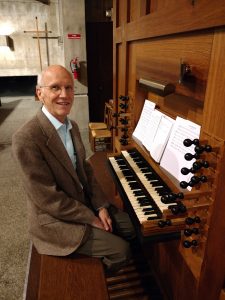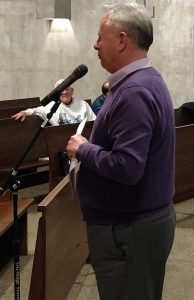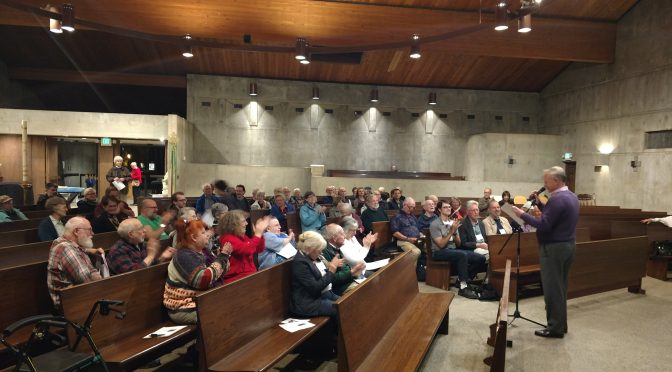
Priest in Charge, Christ Episcopal Church
With a large audience in attendance, composed of members of the Tacoma AGO and Christ Episcopal Church, Dr. Samuel Torvend, Associate Priest for Adult Formation and Dr. Mark Brombaugh, co-Director of Music, presented a program entitled No Greater Art: A Revolutionary Change in Congregational Singing.

Using musical illustrations of congregational singing ably accompanied by Dr. Brombaugh, Dr. Torvend described the transition from a world in which almost all aspects of liturgy were reserved for clergy, to one in which the average congregant had a right to participate and to express opinions.
In the sixteenth century, public singing was popular and widespread–everywhere except the church, where the congregation had a limited role, if any. The participation in worship services was passive. Under the practice of ocular theory, it was felt to be sufficient to gaze upon events in order to derive benefit.

Martin Luther was born into this environment of working class parents. He played lute, sang in the streets for cash, and in church choirs, eventually becoming a friar. He became active politically, criticizing the religious teachings that were part of his daily life. In the course of these changes, Martin Luther began to espouse democratic evolution in the church. He proposed establishing tax-funded public schools with equal access for girls and boys. In 1524, Luther published the first German hymnal.
Luther considered singing to be the most democratic of art forms. He translated many well known Latin texts into German, keeping chant melodies in many cases, but using many musical genres to advance his ideas of reform. Martin Luther approached reform differently from others in that he wished to blend new music into the existing musical heritage, but also to expand his vision to include visual arts and architecture. His goals may have included the truth, but also necessarily included a need to distinguish his religion of the people from its competitors.
“If Martin Luther were alive today, he would be a remarkable user of the Internet.” –– Samuel Torvend
Luther’s reforms were not limited to the Mass. He had a deep investment in the Psalms, wrote his own version of the Daily Office, made changes in the Mass as well, but did not abandon it. He wrote hymns that could be used in every part of his Catechism. Luther defended his actions as being those of a “conservator” rather than a reformer.
Luther insisted on a sung liturgy, emphasizing the importance of song in church assemblies. We have an opportunity and responsibility today to promote singing–in churches, synagogues, cathedrals, and universities. The Lutheran tradition would have us continue to expand the role of singing, with expanded instrumentation and the inclusion of international music.
The handout (minus the hymns) is reproduced below.

